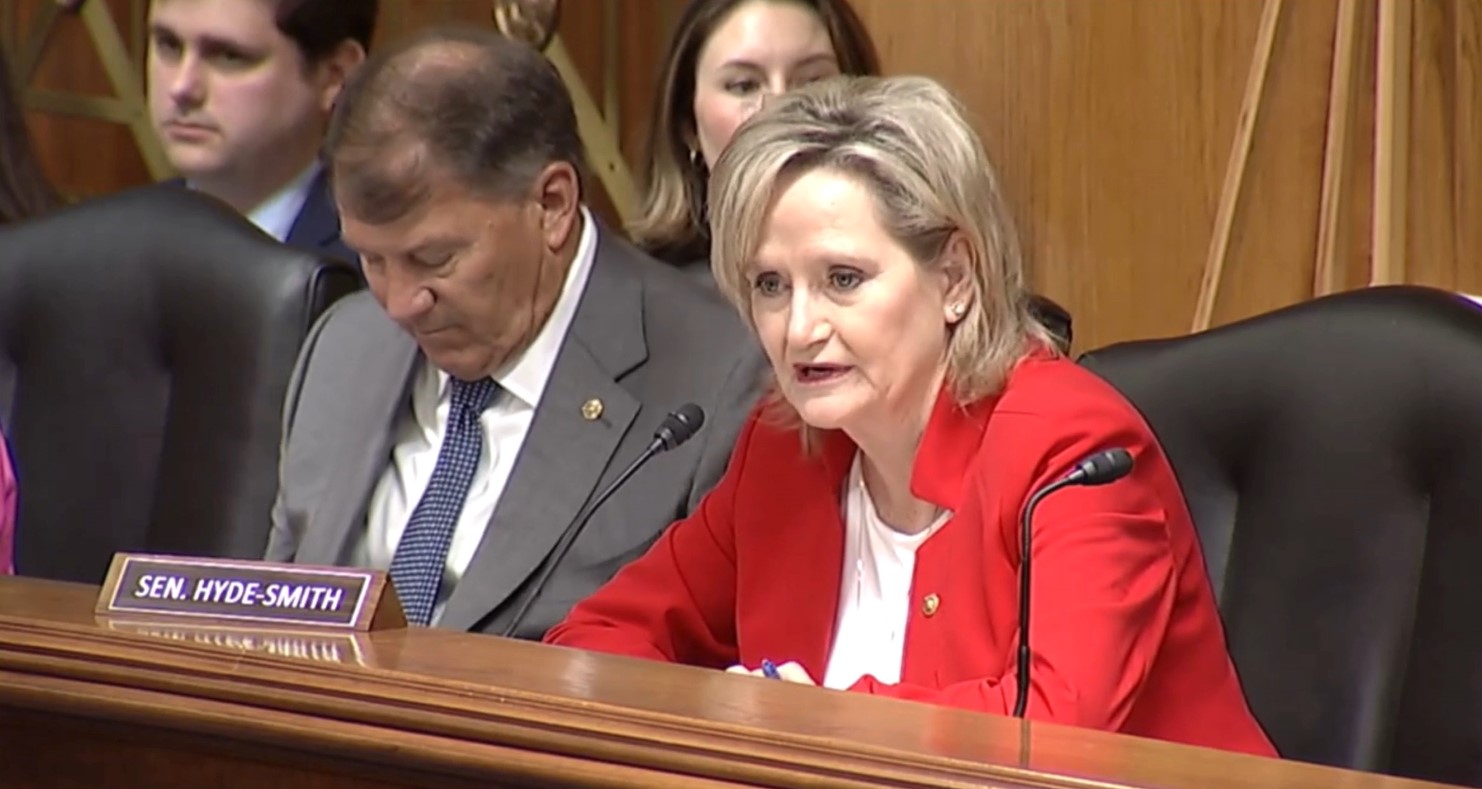HYDE-SMITH REVIEWS VETERANS AFFAIRS BUDGET CHALLENGES TO INFRASTRUCTURE NEEDS, TIMELY ACCESS TO VA CARE

VIDEO: Senator Hyde-Smith and VA Secretary Collins Discuss Budgetary Challenges.
WASHINGTON, D.C. – U.S. Senator Cindy Hyde-Smith (R-Miss.) today questioned Veteran Affairs Secretary Douglas A. Collins on how the Trump administration will tackle persistent infrastructure backlogs and delayed access to care for veterans in Mississippi and around the country.
The Senate Military Construction and Veterans Affairs Appropriations Subcommittee on Tuesday received testimony from Collins during a hearing to review the FY2026 budget request for the U.S. Department of Veterans Affairs.
“We have about 180,000 veterans in Mississippi. These men and women stepped forward, many from rural towns in small areas. It amazes me the percentage of veterans that we have that came out of small, small towns that didn’t even have a red light in them,” Hyde-Smith said. “We are very proud of that because it’s our duty to ensure when they come home that they do have access to quality care that’s going to meet their specific needs.”
Hyde-Smith expressed concerns that shortfalls in the VA State Home Construction Grant programs affect the ability of state-owned veteran homes, like those in Mississippi, to make the repairs and upgrades needed to ensure proper care for veterans. She pointed out that of 184 projects on a propriety list nationally in 2024, only 10 were approved for funding.
“Many of these delayed projects involve the basic repairs as well as some critical upgrades that are truly critical, things that directly affect the quality and safety of our veterans and the care that you’re so well aware of,” Hyde-Smith told Collins. “So how does your administration plan to address the department's growing infrastructure needs given the reality of limited construction funding?”
Collins acknowledged the serious backlog “is not something that goes away,” but that the administration is looking at several ways to correct problems worsened by bureaucratic hurdles and funding limitations associated with short-term funding extensions or continuing resolutions. He called for Congress to help clear up the problem.
“The big thing, and I would love to have both sides of the aisle help on this, we really need to go back and take a look at how we’re doing long-term construction inside the VA. It’s going to come from statute a great deal because we have, you know, Corps of Engineers involvement, we’ve got major projects, we got a lot of different things that really just throw a roadblock into how we are to get these projects done,” Collins said.
Hyde-Smith also raised issues brought up common concerns frequently raised by veterans in Mississippi, namely long wait times for appointments and bureaucratic red tape when trying to access care and benefits.
“You and I both are so aware of the long wait times for appointments and I know that you’re working on that, the red tape,” Hyde-Smith said. “But despite the record levels of funding for the VA in recent years many of these frustrations still remain. So, you want to share with us what your department is doing to make sure the funding plus ups are translating into faster more efficient care for veterans?”
Collins, who noted that since taking office, the VA has decreased the disability claims backlog by 25 percent after it increased 24 percent during the Biden administration, said the VA is focused on changes that will make the department more effective. This includes returning to greater reliance on community care networks outside the VA.
“In the last few years, we’ve seen a move away from community care and to keep it in-house,” Collins said. “I believe VA care is VA care, no matter where we’re paying the bill at and because we’re going to hold them to the same high standards.”
Throughout the hearing, Collins also defended the administration’s overall efforts to reform the VA, including strategic reductions in personnel without cuts to health care or benefits to Veterans or VA beneficiaries.
“We are going to maintain mission-essential jobs like doctors, nurses, and claims processors; and reduce administrator, advisor, and middle manager posts to eliminate duplicative, unnecessary layers of bureaucracy that do nothing to serve our Veterans and hinder our mission,” Collins testified.
###
